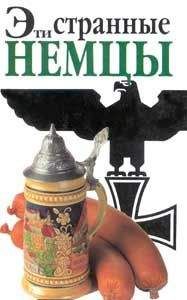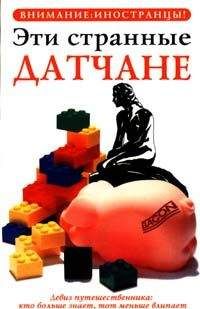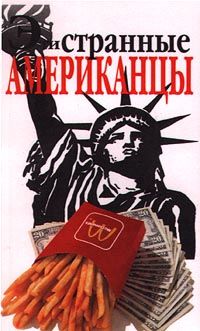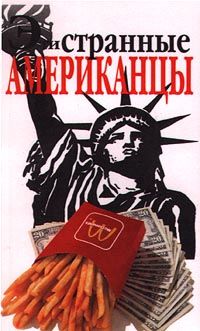Неизвестен Автор - Словарь американских идиом (8000 единиц)
[so to speak] <adv. phr.> To say it in this way. * /John was, so to speak, the leader of the club, but he was officially only the club's secretary./ * /The horse, so to speak, danced on his hind legs./ Compare: AS IT WERE.
[sought after] <adj.> Wanted by many buyers; searched for. * /Antiques are much sought after nowadays./ Syn.: IN DEMAND.
[soul] See: HEART AND SOUL, KEEP BODY AND SOUL TOGETHER.
[soul-searching] See: SEARCH ONE'S HEART or SEARCH ONE S SOUL.
[sound] See: HIGH-SOUNDING, SAFE AND SOUND.
[sound effects] <n.> The noises made to imitate real sounds in a play, movie, or program. * /Greg agreed to plan the sound effects for the class play./ * /The movie was good but the sound effects were not very true to life./
[sound off] <v.> 1. To say your name or count "One! Two! Three! Four!" as you march. - Used as orders in U.S. military service. * /"Sound off!" said the sergeant, and the soldiers shouted, "One! Two! Three! Four!" with each step as they marched./ 2. <informal> To tell what you know or think in a loud clear voice, especially to brag or complain. * /If you don't like the way we're doing the job, sound off!/ * /George sounded off about how the game should have been played./ * /The teacher is always sounding off about the students not doing their homework./ Compare: SPEAK ONE'S PIECE, SPEAK OUT.
[sound out] <v.> To try to find out how a person feels about something usually by careful questions. * /Alfred sounded out his boss about a day off from his job./ * /When you see the coach, sound him out about my chances of getting on the basketball team./ Syn.: FEEL OUT.
[sound sheet] <n.>, <slang>, <informal> A thin low-quality phonograph recording frequently bound into books and magazines for use as promotional or advertising material; it may have either a spoken or a musical message. * /Don't throw that away; Sue is collecting sound sheets for her market research course./
[sound truck] <n. phr.> A truck equipped with loudspeakers. * /During the senatorial campaign, the streets of the big city were full of sound trucks blaring out messages./
[soup] See: IN THE SOUP.
[souped-up] <adj.>, <informal> More powerful or faster because of changes and additions. * /Many teen-aged boys like to drive souped-up cars./ * /The basketball team won the last five games with souped-up plays./
[so what] <informal> Used as an impolite reply showing that you don't care about what another has said. * /Roy boasted that he was in the sixth grade, but Ted said, "So what? I am in Junior High."/ Syn.: WHAT OF IT.
[sow one's wild oats] <v. phr.> To do bad or foolish things, especially while you are young. * /Mr. Jones sowed his wild oats while he was in college, but now he is a wiser and better man./
[space] See: OUTER SPACE.
[spaced out] <adj.>, <slang>, <informal> Having gaps in one's train of thought, confused, incoherent; resembling the behavior of someone who is under the influence of drugs. * /Joe's been acting funny lately - spaced out, you might say./
[space probe] <n.>, <Space English> An unmanned spacecraft other than an Earth satellite fitted with instruments which gather and transmit information about other planets in the solar system (e.g., Venus, Mars, and Jupiter) on what are called fly-by missions, i.e., without the craft landing on any of these bodies. * /Both the U.S.A. and Russia have sent up many a space probe in the past decade./
[spade] See: CALL A SPADE A SPADE.
[Spain] See: BUILD CASTLES IN THE AIR or BUILD CASTLES IN SPAIN.
[spar with] See: FENCE WITH.
[speak] See: ACTIONS SPEAK LOUDER THAN WORDS, CHILDREN AND FOOLS SPEAK THE TRUTH, NOT TO MENTION or NOT TO SPEAK OF, SHORT-SPOKEN, SO TO SPEAK, TO SPEAK OF.
[speakeasy] <n.> A bar during Prohibition where illegal alcoholic beverages were sold. * /Al Capone's associates met in a Chicago speakeasy to drink and discuss business./
[speaker] See: PUBLIC SPEAKER.
[speak for] <v.> 1. To speak in favor of or in support of. * /At the meeting John spoke for the change in the rules./ * /The other girls made jokes about Jane, but Mary spoke for her./ 2. To make a request for; to ask for. * /The teacher was giving away some books. Fred and Charlie spoke for the same one./ 3. To give an impression of; be evidence that (something) is or will be said. - Used with the words "well" or "ill". * /It seems that it will rain today. That speaks ill for the picnic this afternoon./ * /Who robbed the cookie jar? The crumbs on your shirt speak ill for you, Billy./ * /John wore a clean shirt and a tie when he went to ask for a job, and that spoke well for him./ * /It speaks well for Mary that she always does her homework./
[speak of the devil and he appears] A person comes just when you are talking about him. - A proverb. * /We were just talking about Bill when he came in the door. Speak of the devil and he appears./
[speak one's mind] <v. phr.> To say openly what you think; give advice that may not be liked. * /John thought it was wrong to keep George out of the club and he spoke his mind about it./ Compare: SOUND OFF.
[speak one's piece] See: SAY ONE'S PIECE.
[speak out of turn] <v. phr.> To say something tactless; commit an indiscretion. * /You spoke out of turn in criticizing Aunt Hermione's old furniture; she considers herself quite a connoisseur on the subject./
[speak out] or [speak up] <v.> 1. To speak in a loud or clear voice. * /The trucker told the shy boy to speak up./ 2. To speak in support of or against someone or something. * /Willie spoke up for Dan as club president./ * /Ed spoke up against letting girls join the club./
[speak the same language] <v. phr.> To have similar feelings, thoughts, and tastes; have a mutual understanding with another person. * /We both love listening to Mozart. Obviously, we speak the same language./
[speak volumes] <v. phr.> To tell or show much in a way other than speaking; be full of meaning. * /The nice present she gave you spoke volumes for what she thinks of you./ * /A child's choice of hobbies speaks volumes./ Compare: READ BETWEEN THE LINES.
[speak well of] <v. phr.> To approve of; praise. * /Everyone always speaks well of my sister because she's so kind./
[speak with a forked tongue] <v. phr.>, <literary> To lie; to say one thing while thinking of the opposite. * /I have learned not to trust Peter's promises because he speaks with a forked tongue./
[speed trap] <n.> A place where police hide and wait to catch drivers who are going even a little faster than the speed limit. * /Mr. Jones was caught in a speed trap./
[speed up] <v.> To go faster than before; also, to make go faster. * /The car speeded up when it reached the country./ * /Push in the throttle to speed up the engine./ Compare: PICK UP(12). Contrast: SLOW DOWN.
[spell out] <v.> 1. To say or read aloud the letters ot a word, one by one; spell. * /John could not understand the word the teacher was saying, so she spelled it out on the blackboard./ 2. To read slowly, have trouble in understanding. * /The little boy spelled out the printed words./ 3. <informal> To explain something in very simple words; explain very clearly. * /The class could not understand the problem, so the teacher spelled it out for them./ * /Before the game the coach spelled out to the players what he wanted them to do./ Compare: WORDS OF ONE SYLLABLE.
[spell trouble] <v. phr.> To signify major difficulties ahead. * /The note we just received from the Chancellor seems to spell trouble./
[spending money] or [pocket money] <n.> Money that is given to a person to spend. * /When the seniors went to New York City on a trip, each was given $10 in spending money./ * /Father gave John a nickel in pocket money when he went to the store with Mother./
[spend the night] <v. phr.> To sleep somewhere. * /It was so late after the party that we decided to spend the night at our friends' house./
[spick-and-span] <adj.> Sparkling clean; having a brand new look. * /She is such a good housekeeper that her kitchen is always spick-and-span./
[spill] See: CRY OVER SPILLED MILK.
[spill the beans] <v. phr.>, <informal> To tell a secret to someone who is not supposed to know about it. * /John's friends were going to have a surprise party for him, but Tom spilled the beans./ Compare: GIVE AWAY(3), LET THE CAT OUT OF THE BAG, TELL TALES OUT OF SCHOOL.
[spin a yarn] <v. phr.> To tell a story of adventure with some exaggeration mixed in; embellish and protract such a tale. * /Uncle Fred, who used be a sailor, knows how to spin a fascinating yarn, but don't always believe everything he says./
[spine-chilling] <adj.> Terrifying; causing great fear. * /Many children find the movie, "Frankenstein," spine-chilling./ * /A was spine-chilling to learn that a murderer was in our neighborhood./ Compare: HAIR STAND ON END.
[spine-tingling] <adj.> Very exciting; thrilling. * /Our ride up the mountain in a chair lift was spine-tingling./ * /The children's plane ride was a spine-tingling adventure to them./
[spinoff] <n.> A byproduct of something else. * /The television soap opera "Knot's Landing" was considered a spinoff of "Dallas," with many of the same characters featured in both./
[spin off] <v. phr.> To bring something into existence as a byproduct of something that already exists. * /When Dr. Catwallender opened his medical practice, he also spun off a small dispensary beside it where patients could get their prescriptions filled./
[spin one's wheels] <v. phr.> 1. Said of cars stuck in snow or mud whose wheels are turning without the car moving forward. * /There was so much snow on the driveway that my car's wheels were spinning in it and we couldn't get going./ 2. To exert effort in a job without making any progress. * /I've been working for the firm for two decades, but I feel I am merely spinning my wheels./
[spin out] <v. phr.> 1. To go out of control. * /The bus spun out on the icy road and fell into the ditch./ 2. To make something go out of control. * /Tom stepped on the brakes so fast that he spun his car out of control and went off the road./
[spirit away] <v. phr.> To hide or smuggle something out; abduct. * /The famous actress was spirited away by her bodyguards as soon as she emerged from the door./
[spite] See: CUT OFF ONE'S NOSE TO SPITE ONE'S FACE.
[spit] or [piss into the wedding cake] <v. phr.>, <vulgar>, <avoidable> To spoil someone's pleasure or celebration by doing or saying something harsh or unseemly in an otherwise happy gathering; bring up depressing or unhappy subjects at a supposedly happy time. * /Stuart really spit into the wedding cake when he told Burt in a bragging fashion that Lucy, Burl's bride, used to be his girlfriend./
[spitting image] <n.> or [spit and image] <informal> An exact likeness; a duplicate. * /John is the spitting image of his grandfather./ * /That vase is the spitting image of one I wanted to buy in Boston./ Compare: LIKE FATHER, LIKE SON.
[spit up] <v.> To vomit a little. * /The baby always spits up when he is burped./ * /Put a bib on the baby. I don't want him to spit up on his clean clothes./
[split end] <n.> An end in football who plays five to ten yards out from the tackle in the line. * /The split end is one of the quarterback's most important targets for passes./ Contrast: TIGHT END.
[split hairs] <v. phr.> To find and argue about small and unimportant differences as if the differences are important. * /John is always splitting hairs; he often starts an argument about something small and unimportant./ * /Don't split hairs about whose turn it is to wash the dishes and make the beds; let's work together and finish sooner./
[split second] <n.> A very short time; less than a second. * /The lightning flash lasted a split second, and then disappeared./
[split the difference] <v. phr.>, <informal> To settle a money disagreement by dividing the difference, each person giving up half. * /Bob offered $25 for Bill's bicycle and Bill wanted $35; they split the difference./
[split ticket] <n.> A vote for candidates from more than one party. * /Mr. Jones voted a split ticket./ * /An independent voter likes a split ticket./ Contrast: STRAIGHT TICKET.
[split up] <v. phr.> 1. To separate; get a divorce. * /After three years of marriage, the unhappy couple finally split up./ 2. To separate something; divide into portions. * /The brothers split up their father's fortune among themselves after his death./
[split-up] <n.> A separation or division into two or many smaller parts. * /The split-up of our company was due to the founder's untimely death./
[spoil for] <v. phr.> To want something very badly; be belligerent or pugnacious about something. * /After a few drinks it became embarrassingly evident that Hal was spoiling for a fight./ Compare: HANKER AFTER, LUST FOR.
[spoken for] <adj.> Occupied; reserved; taken; already engaged or married. * /"Sorry, my boy," Mr. Jones said condescendingly, "but my daughter is already spoken for. She will marry Fred Wilcox next month."/
[sponge] See: THROW IN THE SPONGE.
[sponge bath] <n.> A bath with a cloth or sponge and a little water. * /During the drought the family had only sponge baths./ * /The family took sponge baths because they had no bathtub./
[sponge on] or [off] <v. phr.> To exploit parasitically; depend upon for support. * /He is already forty years old, but he refuses to go to work and sponges off his retired parents./
[spoon] See: BORN WITH A SILVER SPOON IN ONE'S MOUTH.
[spoon-feed] <v.> 1. To feed with a spoon. * /Mothers spoon-feed their babies./ 2a. To make something too easy for (a person). * /Bill's mother spoon-fed him and never let him think for himself./ * /Alice depended on her mother for all decisions because she had been spoon-fed./ 2b. To make (something) too easy for someone. * /Some students want the teacher to spoon-feed the lessons./
[sporting blood] <n.> Willingness to take risks; spirit of adventure. * /The cowboy's sporting blood tempted him to try to ride the wild horse./ * /The boy's sporting blood caused him to run away with a circus./
[spot] See: HIT THE HIGH SPOTS, HIT THE SPOT, JOHNNY-ON-THE-SPOT, ON THE SPOT or UPON THE SPOT also IN A SPOT, SORE SPOT.
[spot check] <n. phr.> A sample check or investigation. * /Internal Revenue Service employees often conduct a spot check of individual returns when the figures don't add up./
[spotlight] See: STEAL THE SPOTLIGHT.
[spread it on thick] See: LAY IT ON or LAY IT ON THICK.
[spread like wildfire] <v. phr.> To spread uncontrollably and rapidly. * /Bad news has a tendency to spread like wildfire./
[spread oneself too thin] <v. phr.> To try to do too many things at one time. * /As the owner, chef, waiter, and dishwasher of his restaurant, Pierre was spreading himself too thin./
[spring a leak] <v. phr.> 1. To develop a hole (said of boats) through which water can enter, threatening the boat to sink. * /When our small boat sprang a leak, we rapidly returned to shore to fix it./ 2. To be threatened by some oncoming danger. * /Our firm sprang a leak when the vice president suddenly died of a heart attack./




